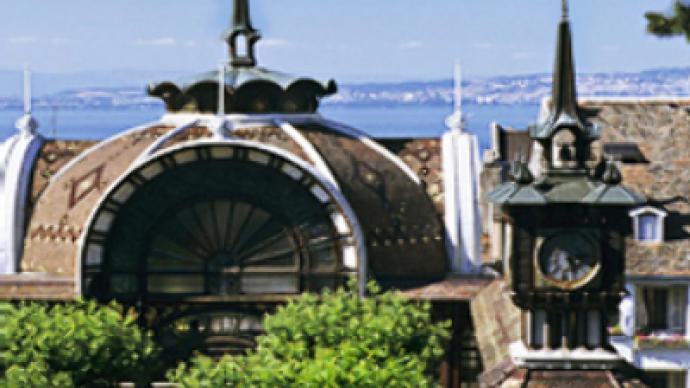First World Policy Conference meets in Evian

Into the myriad of international clubs, meetings and summits, a new one is emerging. The French Institute of International Relations is hosting 25 world leaders and a bevy of diplomats, representatives of international organisations, former high officials
It runs from October 6 through to the 8th. It is being billed as an alternative to the World Economic Forum in Davos and is indeed a very different event from the Swiss confab. Its first time out may look a little shaky, but it may be preferable not to second guess the intentions of the organisers.
The Evian conference’s focus, like that in Davos, is on world and regional economic challenges. Twenty thematic discussions have been organised. However, earnestness, and a somewhat more modest scale, may characterise the Evian event, in contrast to the glitz of Davos, where such celebrities as Bill Gates and Bono appeared this year along with U.S. Secretary of State Condoleezza Rice, UN Secretary-General Ban Ki-Moon and former British Prime Minister Tony Blair.
The guests at Evian are an odd mix at first glance. International organisations are present – among them NATO, the European Central Bank and WTO, represented by their heads. Russian President Dmitry Medvedev and French President Nicolas Sarkozy will close the conference on October 8 but, other than them, the world’s most powerful countries are poorly represented.
Probably the most prominent American to attend the conference is former U.S. national security advisor Zbigniew Brzezinski. Great Britain and China seem to be completely invisible there. Big business is represented mainly by the French energy company Total.
It can be assumed that the absence of at least one U.S. State Department representative, a Chinese official or two and a greater number of representatives of the ‘old’ EU is intentional. It would not be hard to attract them to a meeting of this calibre.
In the peculiarly multipolar and almost intimate environment of a gathering of heads of international agencies and heads of small states, with the French and Russian presidents coming at the end to give them their blessings, other voices have an opportunity to be heard.
The presidents of Croatia, Estonia, Mongolia, Senegal, Serbia and Switzerland and the Prime Minister of the Palestinian Authority will be among the leaders in attendance. Many of the national leaders at the Evian conference will be taking on a new role – it might be called “summiteer” – expressing their views and proposing action on regional issues in an interregional context and addressing global problems. That is, Mongolia’s Nambaryn Enkhbayar will have a go at the stuff Condoleezza Rice and Angela Merkel do practically all the time.
Similarly, the Ivy League and Oxbridge have a low profile at the conference, while think tanks in Indonesia, Saudi Arabia and Russia are prominent. Sergey Karaganov, dean of the Russian School of International Economics and Foreign Affairs (State University, Higher School of Economics) and Anatoly Torkunov, rector of the Moscow State Institute of International Relations are among the speakers.
The Evian conference may provide new approaches and fresh input to the problems that plague the world and keep conference attendees busy. If that proves to be the case, it will be a worthy addition to the international scene.












